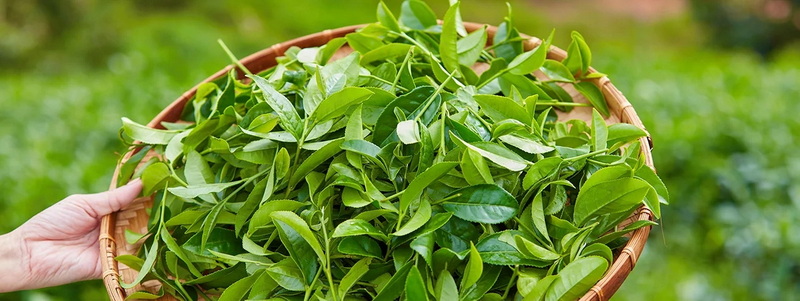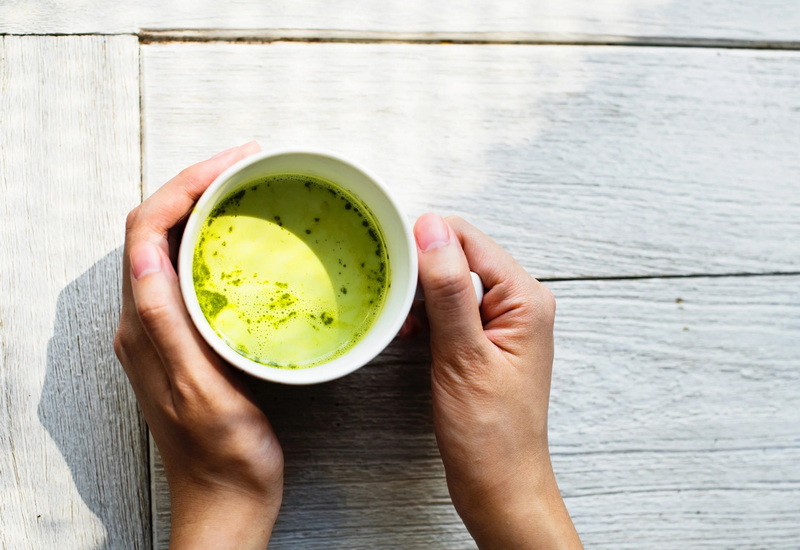Content Menu
● Introduction to L-Theanine
>> Mechanisms of Action
● Cognitive Enhancement by L-Theanine
>> Attention and Focus
>> Memory
>> Executive Functions
● Combination with Caffeine
>> Benefits for ADHD
● Green Tea Extract and L-Theanine
>> EEG Studies
● Neuroprotective Effects
>> Potential for Anxiety and Stress Relief
● Conclusion
● FAQ
>> 1. What is L-theanine and where is it found?
>> 2. How does L-theanine enhance cognitive function?
>> 3. What are the benefits of combining L-theanine with caffeine?
>> 4. Can L-theanine improve memory?
>> 5. Is L-theanine safe for consumption?
● Citations:
Green tea, particularly its amino acid component L-theanine, has been extensively studied for its potential cognitive benefits. L-theanine is known for its ability to enhance focus, reduce stress, and promote relaxation without inducing drowsiness. This article will delve into the mechanisms by which L-theanine, especially in a 60% concentration, may enhance cognitive function, including attention, memory, and executive functions.

Introduction to L-Theanine
L-theanine, or γ-glutamylethylamide, is an amino acid found predominantly in green tea. It is known for its calming effects and its ability to improve cognitive functions such as attention and memory. Unlike other amino acids, L-theanine is not involved in protein synthesis but rather acts on neurotransmitter systems in the brain.
Mechanisms of Action
L-theanine acts as a glutamate reuptake inhibitor and a competitive low-affinity glutamate receptor antagonist in the hippocampus, which is crucial for memory and learning. It also interacts with GABA-A receptors, exerting a neuroprotective effect and promoting relaxation without sedation.
Cognitive Enhancement by L-Theanine
Attention and Focus
Studies have shown that L-theanine can improve attention by reducing reaction times in attention tasks such as the Stroop test. This improvement in attention is crucial for enhancing working memory and executive functions. The ability to focus without distraction is particularly beneficial in environments where multitasking is common.
Memory
While L-theanine alone may not significantly improve memory, when combined with green tea extract, it has been shown to marginally increase delayed recognition in memory tests. This suggests that L-theanine could play a supportive role in memory enhancement when used alongside other cognitive enhancers. The neuroprotective effects of green tea catechins like EGCG may also contribute to preserving memory functions over time.
Executive Functions
Executive functions include a range of cognitive processes such as planning, decision-making, and problem-solving. L-theanine has been found to enhance these functions by improving attention, which is a foundational component of executive function. Enhanced executive functions can lead to better performance in tasks requiring strategic thinking and adaptability.

Combination with Caffeine
The combination of L-theanine and caffeine is particularly noteworthy for its synergistic effects on cognition. This combination improves total cognition composite, attention switching, and inhibitory control. It also reduces mind wandering and enhances alertness without the typical jitters associated with caffeine alone. The balance between relaxation and alertness provided by this combination makes it popular among students and professionals seeking to improve productivity.
Benefits for ADHD
In individuals with Attention Deficit Hyperactivity Disorder (ADHD), the L-theanine-caffeine combination may offer therapeutic benefits by improving sustained attention and inhibitory control. While not a replacement for standard ADHD treatments, this combination can be a useful adjunct to help manage symptoms.
Green Tea Extract and L-Theanine
Green tea extract, rich in catechins like EGCG, has neuroprotective effects that complement the cognitive benefits of L-theanine. Together, they may enhance memory and attention in individuals with mild cognitive impairment. The antioxidant properties of green tea extract also contribute to overall brain health by reducing oxidative stress.
EEG Studies
Electroencephalography (EEG) studies have shown that the combination of green tea extract and L-theanine increases theta brain waves, indicative of cognitive alertness and relaxation. This state is conducive to focused work and creative tasks.
Neuroprotective Effects
Beyond cognitive enhancement, L-theanine and green tea extract have been studied for their neuroprotective properties. They may help protect against neurodegenerative diseases by reducing inflammation and oxidative stress in the brain. This makes them potential candidates for preventive strategies against conditions like Alzheimer's and Parkinson's diseases.
Potential for Anxiety and Stress Relief
L-theanine is well-documented for its ability to reduce stress levels and promote relaxation. This can indirectly enhance cognitive function by reducing anxiety and improving mood, both of which are critical for optimal cognitive performance.
Conclusion
L-theanine, particularly in a 60% concentration, offers promising cognitive benefits by enhancing attention, supporting memory, and improving executive functions. When combined with caffeine or green tea extract, these effects are amplified, providing a synergistic approach to cognitive enhancement. As research continues to uncover the full potential of L-theanine, it remains a valuable supplement for those seeking to improve their mental clarity and productivity.

FAQ
1. What is L-theanine and where is it found?
L-theanine is an amino acid primarily found in green tea, especially in varieties like matcha and gyokuro. It is known for its calming effects and cognitive benefits.
2. How does L-theanine enhance cognitive function?
L-theanine enhances cognitive function by improving attention, which supports working memory and executive functions. It acts on neurotransmitter systems to promote relaxation and focus.
3. What are the benefits of combining L-theanine with caffeine?
Combining L-theanine with caffeine improves attention, reduces mind wandering, and enhances alertness without typical caffeine side effects like jitteriness.
4. Can L-theanine improve memory?
While L-theanine alone may not significantly improve memory, when combined with green tea extract, it shows potential in marginally enhancing memory functions.
5. Is L-theanine safe for consumption?
L-theanine is generally considered safe for consumption. However, it may cause headaches or mental fatigue in some individuals, especially when taken in high doses.
Citations:
[1] https://pubmed.ncbi.nlm.nih.gov/33751906/
[2] https://pmc.ncbi.nlm.nih.gov/articles/PMC8794723/
[3] https://pubmed.ncbi.nlm.nih.gov/21303262/
[4] https://pmc.ncbi.nlm.nih.gov/articles/PMC6836118/
[5] https://www.naturalmedicinejournal.com/journal/green-tea-and-l-theanine-mild-cognitive-impairment
[6] https://www.cureus.com/posters/1783-the-effects-of-caffeine-and-l-theanine-as-a-cognitive-enhancer-a-systematic-review
[7] https://www.jstage.jst.go.jp/article/jnsv/68/6/68_540/_pdf/-char/en
[8] https://www.healthline.com/health/l-theanine
[9] https://www.nature.com/articles/s41598-024-59383-y
[10] https://www.nature.com/articles/s41598-020-70037-7
[11] https://pmc.ncbi.nlm.nih.gov/articles/PMC8080935/
[12] https://www.medicalnewstoday.com/articles/324120






























